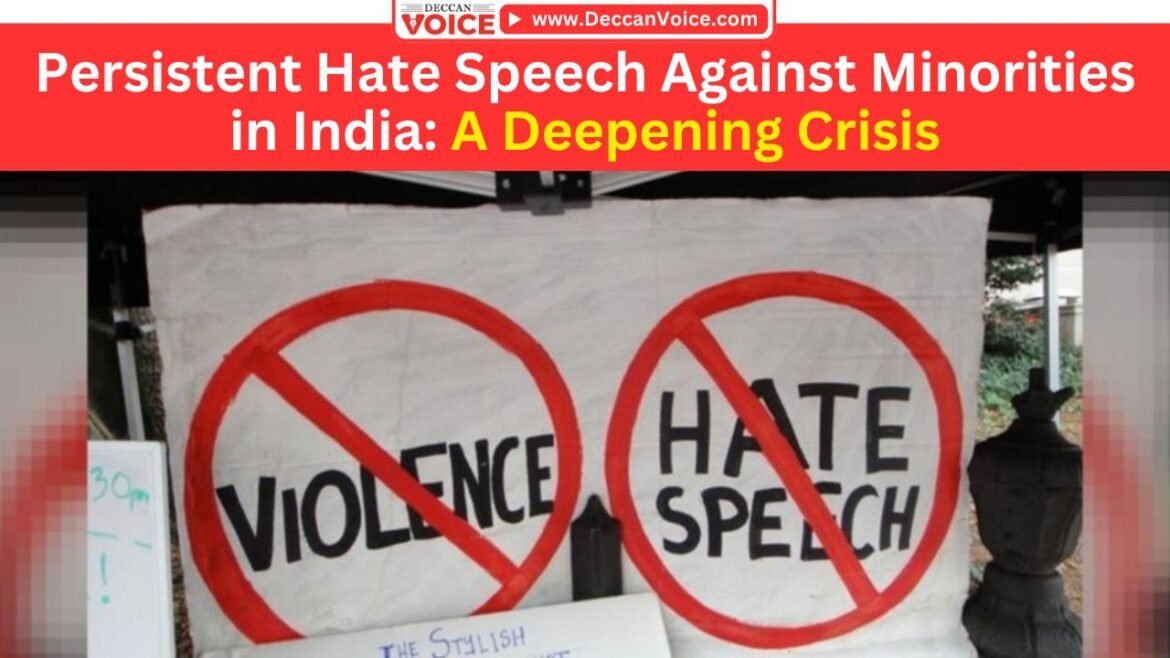Table of Contents
India, a nation known for its diversity and rich cultural heritage, is increasingly witnessing a disturbing trend: the rise in hate speech against minorities. Figures such as Yati Narsinghanand and various YouTubers, often backed by political leaders, continue to propagate divisive rhetoric. Despite widespread condemnation, these hate speeches persist, undermining India’s secular fabric and global image.
High-Profile Figures and Hate Speech
Yati Narsinghanand and Other Influencers
Yati Narsinghanand, a controversial figure, has repeatedly made inflammatory remarks against Muslims. His speeches often incite violence and hatred, yet he continues to have a platform. Similarly, some YouTubers, who have significant followings, spread hate speech under the guise of nationalism. These individuals frequently receive tacit or explicit support from political leaders, which emboldens them and their followers.
Political Backing
The backing from political leaders is a critical factor in the perpetuation of hate speech. These leaders often use communal rhetoric to mobilize their voter base, creating an environment where hate speech is normalized and even encouraged. The lack of accountability and punitive action against such figures further exacerbates the problem.
Case Study: Inaction by Authorities
A personal encounter with a high-ranking police officer highlights the systemic issues in tackling hate speech. Upon filing a complaint about an MLA known for delivering hate speeches against minorities, the officer revealed a troubling reality. Despite knowing the perpetrators and their actions, the police are often powerless due to the judicial system’s inefficacy. The officer stated:
“We know who are doing what and we arrest them, but in a day or two, they are released from court. This happens many times. Because of this, our image is compromised. Thus, we don’t take instant action unless people file FIRs and raise proper and legal voices from the community so that the court also takes action.”
Legal and Systemic Challenges
Judicial Bottlenecks
The judicial process in India often fails to deliver timely justice. Accused individuals, especially those with political connections, manage to secure bail quickly, rendering the efforts of law enforcement agencies futile. This recurring cycle of arrest and release erodes public trust in the legal system and emboldens perpetrators.
Lack of Stringent Laws
While laws exist to curb hate speech, their enforcement is inconsistent. The existing legal framework lacks the teeth to effectively deter hate speech. Enhanced legal provisions, coupled with strict enforcement, are necessary to address this growing menace.
Community Response
The community’s role in addressing hate speech is crucial. The police officer’s insight underscores the importance of filing FIRs and raising collective voices. Community-driven legal actions can pressure the judiciary to take more decisive measures. However, fear of retribution and a lack of awareness often hinder such efforts.
Impact on India’s Image
The persistence of hate speech against minorities tarnishes India’s image globally. As a nation striving to be a global leader, India cannot afford to be seen as a country where communal hatred is rampant and unchecked. The international community closely watches how India addresses these issues, impacting its diplomatic relations and economic partnerships.
The Way Forward
Stronger Legal Framework
India needs a robust legal framework to combat hate speech effectively. This includes stringent penalties for offenders and swift judicial processes to ensure timely justice. Laws should be amended to make hate speech a non-bailable offense, ensuring that perpetrators cannot easily escape the consequences of their actions.
Political Accountability
Political leaders must be held accountable for their rhetoric. Parties should take a stand against hate speech and ensure that their members do not indulge in such practices. Internal disciplinary actions and public condemnations can serve as strong deterrents.
Empowering Communities
Communities must be empowered to take legal action against hate speech. Awareness campaigns about legal rights and processes can encourage more people to file FIRs and pursue justice. Support systems for victims of hate speech can also play a crucial role in building resilience and unity.
Role of Media and Civil Society
The media and civil society organizations have a pivotal role in highlighting instances of hate speech and advocating for justice. Responsible journalism that exposes hate speech without amplifying it can help raise awareness. Civil society groups can provide legal aid and support to those affected by hate speech.
Conclusion
The persistence of hate speech against minorities in India is a grave concern that undermines the country’s secular principles and global reputation. Addressing this issue requires a multifaceted approach, involving stronger legal frameworks, political accountability, empowered communities, and active media and civil society engagement. Only through collective and sustained efforts can India hope to curb hate speech and uphold the values of tolerance and unity that are central to its identity.



